The story won’t go away, will it? Because this killer virus doesn’t seem to go away. Now Dallas is jittery all over again with the announcement that a second nurse who treated the deceased Liberian Ebola-infected patient is herself infected with Ebola. And now a whole new network of family, neighbors, associates must be staked out to determine if this infected nurse accidently infected one of them as well. Add to these concerns the World Health Organization’s announcement this week that the infection rate of Ebola in West Africa will accelerate in two months to as many as 10,000 new cases a week. How does the global community build a fire-wall around that number? It doesn’t take an epidemiologist to recognize that just a handful of breaches in quarantine efforts—just a few infected humans slipping across a border or two into a previously uncontaminated region or country—could conceivably turn this regional plague into a trans-African crisis of unimagined proportions. And then how long would the rest of the world remain untouched? Just the typical media hype? I’m not so sure anymore. I read a report this week from the Center for Infectious Disease Research and Policy (part of the Academic Health Center at the University of Minnesota) stating: “We believe there is scientific and epidemiologic evidence that Ebola virus has the potential to be transmitted via infectious aerosol particles both near and at a distance from infected patients”—the implication being that “healthcare workers should be wearing respirators, not facemasks” (http://www.cidrap.umn.edu/news-perspective/2014/09/commentary-health-workers-need-optimal-respiratory-protection-ebola). I.e., the virus may be transmitted in the air surrounding an infected victim. If those CIDRAP concerns are valid, then obviously the spread of Ebola virus is no longer limited to contact with bodily fluids. But doesn’t God promise, “No evil shall befall you, nor shall any plague come near your dwelling” (Psalm 91:10)? The Adventist Review reported this week that Ebola has killed 16 Adventists in West Africa. The truth is, divine protection was never intended to be a permanent immune shield for the ills and evils of this planet. Then should we be worried? No. We should be concerned, deeply concerned both for the plight of the inhabitants of West Africa and for a world where “pestilences” will abound until Christ returns (Matthew 24:7). And where we can, let us act on our compassion in humanitarian ways that can help alleviate human suffering. We must respond like Jesus. (Go to Adventist Frontier Missions—www.afmonline.org—for ways you can respond.) In the meantime let us not dismiss too quickly the disequilibrium Ebola has already injected into global consciousness. Should this epidemic jump the firewall, life on this planet will be radically altered. And the difficulty of communicating God’s last appeal “to every nation, tribe, tongue and people” will be significantly ramped up. Jesus’ description of the global psyche when He returns may not be so far off—“men’s hearts failing them from fear” (Luke 21:26). So with hope and an urgency borne of compassion let us go to our neighbors and nations with the announcement that the Healer of the human family is coming soon. “Turn to Me and be saved, all you ends of the earth” (Isaiah 45:22).
Pastors' Blog
By Pioneer Pastors
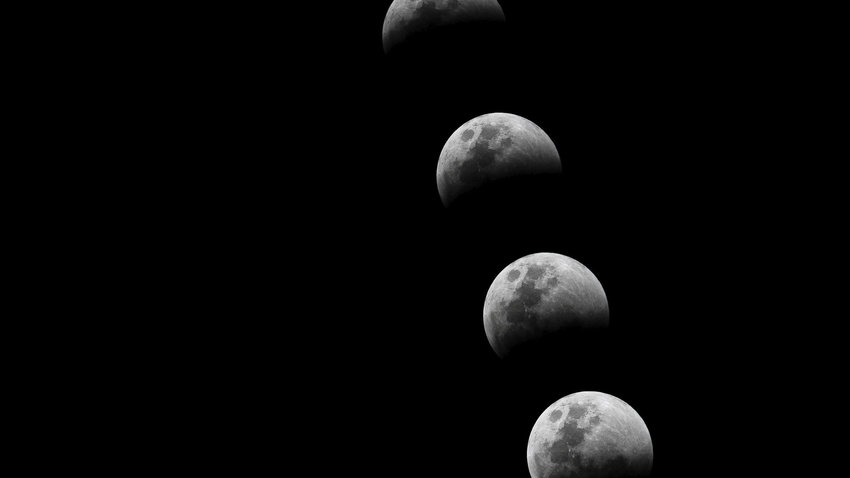
What a pre-dawn moment of glory! Did you remember to check out the total lunar eclipse Wednesday morning before sunrise? When I stepped out under the stars, the heavens were literally ablaze in white pinpoint. With no ambient light from the eclipsing moon and not a cloud above, it truly was a spectacular vista high overhead. And as the moon slowly bore more and more of earth’s shadow (or, as the earth crossed more and more into the blazing light of the unrisen sun), the moon’s white turned to a dull orange, not unlike a frosted incandescent bulb with a fading element inside of it. Some see a coppery red during a lunar eclipse (thus the expression “blood moon”), but it certainly appeared orange to me. The reason for any color at all is (as www.space.com explains it) because of the fiery ring that encircles the earth when it fully blocks the sun. Apparently, if we were standing on the moon during this eclipse, the view of earth would be even more specular than what we saw of the moon—our home planet pitch black except for that blazing ring around its edge. When I came back in from the breathtaking display, my mind was drawn to a collage of ancient exclamations. “When I consider your heavens, the work of your fingers, the moon and the stars, which you have set in place, what is mankind that you are mindful of them, human beings that you care for them? . . . The heavens declare the glory of God; the skies proclaim the work of his hands. Day after day they pour forth speech; night after night they reveal knowledge. They have no speech . . . yet their voice goes out . . . . [For] by the word of the LORD the heavens were made, their starry host by the breath of his mouth” (Psalms 8:3,4; 19:1-4; 33:6). How truly puny and insignificant the human creation is when set against a trillion galaxies and a septillion (a 1 followed by 24 zeroes) stars! And yet—wonder of wonders—the Creator of them all stripped aside His majesty, descended into the womb of an earthling, and from there entered our consciousness, “God with us.” Who can comprehend such mystery? Ian Pitt-Watson was right: “Some things are loved because they are worthy; some things are worthy because they are loved.” No wonder the night sky summons our adoration. For in the path of moon and stars, we trace His love.
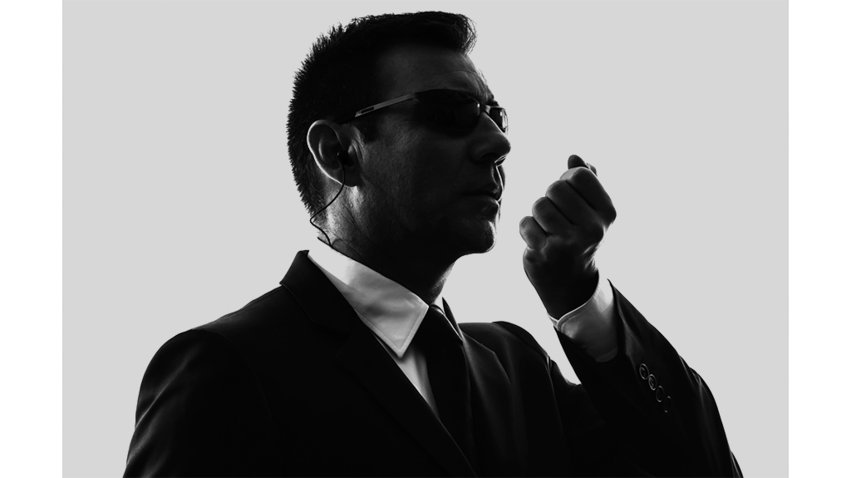
Apparently it was quite a heated grilling last Tuesday at the House Oversight Committee’s Q & A with Julia Pierson, director of the Secret Service. Two recent lapses in White House and presidential security have certainly raised a non-partisan ruckus in Congress. And perhaps justifiably so. On September 16 a knife-carrying intruder leaped the White House fence and raced past guards, all the way into the East Room of the White House, an unprecedented breach of security. Then the nation learned that three days previous President Obama, in a visit to the Centers for Disease Control and Prevention in Atlanta, had ridden up an elevator with an armed federal contractor. Turns out that gentleman had three convictions for assault and battery on his record. It probably didn’t help his case that he stood there in the elevator videoing the President as they ascended! Thus to note that Julia Pierson’s appearance before the Congressional committee was adversarial is perhaps an understatement. “What were you people in the Secret Service thinking?” Etc. To which Ms. Pierson asserted, “The president is safe today.” Well. Let’s face it—security is a big deal in anybody’s book these days. Commoners like you and me have reason to pause many times in the course of a week over concern about our personal safety and security. We have a new family in our neighborhood that owns a pet pit bull. It may be the friendliest pit bull on earth, but as I run by the house each morning I keep a wary eye for any sign of a dog on the loose! No Secret Service details are assigned to us. But take heart—we don’t go out into this dangerous world unprotected. “The angel of the LORD encamps around those who fear him, and he delivers them” (Psalm 34:7). That’s not only a statement of fact—it is also a divine promise! “A guardian angel is appointed to every follower of Christ. These heavenly watchers shield the righteous from the power of the wicked one.” And because this is a university, consider the following sentence: “ . . . it is their work to guard the youth. . . . Ten thousand times ten thousand and thousands of thousands of angels minister to the youth” (The Truth about Angels 14, 19). And besides, if one angel felled an entire battalion of Roman warriors at the resurrection of Jesus, you and I are hardly getting short-changed to have one angel as our night and day guardian! One of my favorite songs was written and sung by Fernando Ortega: “Jesus, King of Angels, Heaven’s light/Hold my hand and keep through this night./Let no evil come into my dreams,/Light of Heaven, keep me in your peace.” Yes, we have the angels. But best all, we have the King of Angels, too.
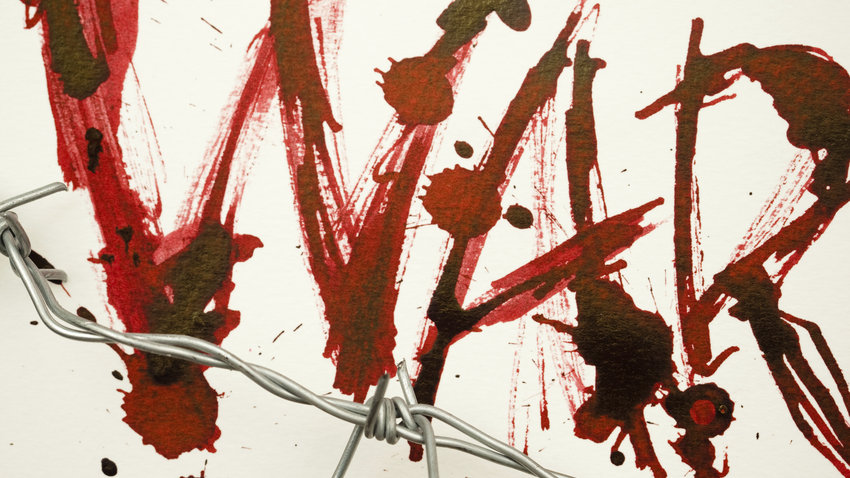
Have you noticed that life on this home planet of ours is living up to the second law of thermodynamics—that calculus about “entropy,” which we’ve come to define as “a gradual decline into disorder”? This single phrase succinctly, painfully describes the unraveling crisis in the Middle East, doesn’t it? (Is the Middle East ever not in crisis?) This week the President announced that once again our nation is at “war” (albeit one theoretically limited only to high altitude fire power) in or above the sprawling desert sands of the Near East. When will this one end? Nobody can say. What the President did say to the United Nations on Wednesday was, “There is a pervasive unease in our world.” How true. So what posture shall we as American Christians, more particularly as Seventh-day Adventist Christians, take to the endless bleed or entropy that retrogrades any hope of lasting peace in that volatile region? We know well our Lord’s parting command, “Go into all the world and make disciples of all nations” (Matthew 28:19). And there isn’t one of us that doesn’t believe that His commission certainly includes the Muslim world’s 1.4 billion adherents. But how shall we respond in the face of a global hemorrhage that cannot be staunched? May I suggest three responses? First, we can pray. Dramatic narratives in both testaments of Scripture (read Esther and Acts for starters) depict the people of God earnestly interceding for divine intervention and deliverance in the face of dark prospects. The psalmist pleads: “Give us aid against the enemy, for human help is worthless” (Psalm 108:12). The truth is we—Muslims, atheists, Christians—share a common enemy behind all the terror and evil unleashing on earth. Thus the prayer Jesus taught us: “Deliver us from the evil one” (Matthew 6:13). For the sake of God’s will being “done on earth even as it is in heaven,” let us petition Him to hold the Enemy at bay long enough to reach all of God’s earth children while there is time. Second, there are some of us who can personally go to the deserts sands of human suffering. Right now Adventist Frontier Mission (AFM here in our village) is preparing to send one or two (no doubt young) missionaries to minister to the ISIS-displaced refugees in Erbil, Iraq. The conditions those refugees are enduring (I’ve seen AFM president Conrad Vine’s pictures) are appalling. What more Christ-like response could there be than incarnating His cross-cultural love for these sufferers? (For more information go to www.afmonline.org/missionaries.) Third, we can join the Friday Prayers for the Muslim world. It is no more logically correct to conclude that the Muslim faith fosters ISIS butchery against Christians, than it is to conclude that the Christian faith fostered the butchery of the Crusades against Muslims long ago. There are millions within Islam today whose hearts are seeking the One true God. Why not join the Friday Prayers that AFM sponsors and intercede for Christ’s miraculous breakthrough to these honest in heart (www.afmonline.org/get-involved/friday-prayers/)? Will the world slowly bleed out until Christ comes? Without a doubt. In fact believers in Him rightfully conclude there will come a stunning acceleration of evil’s hemorrhage as we near the end. But rather than railing against the dark, we must light the bright candle of faith, hope and love. One candle—one intercessor, one volunteer, one missionary, one contagious witness—can dispel the darkness in any corner of Earth. Won’t you please be that one?
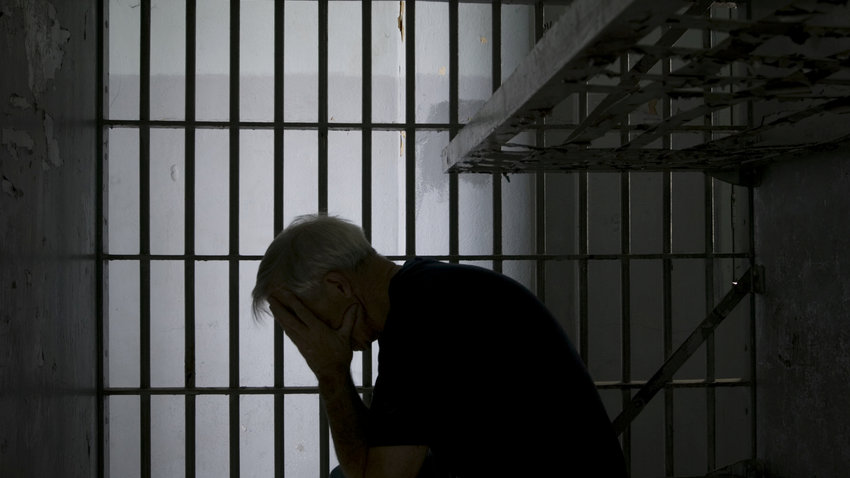
“Here’s a Fourth Watch story for you,” emailed one of the readers of this blog. And I agree. Early Sunday morning, June 25, 2006, Corporal Gilad Shalit, a nineteen-year-old soldier with the Israel Defense Forces, was kidnapped by Hamas militants on the Israeli side of its border with Gaza. Abducted back into Gaza, Corporal Shalit became the rallying cry of a nation caught between two clashing ideals: never negotiate with terrorists versus never abandon one of your own. Hamas refused International Red Cross requests to visit Shalit on grounds that it would reveal the captured soldier’s whereabouts. Over the five years of his captivity “Free Shalit” rallies across Israel increased pressure on the Israeli government to achieve his release. The news this week that Hamas had agreed to return Corporal Shalit was met with jubilation by Israelis . . . until the negotiated terms of the release were reported. And suddenly the country was divided. How much is one Israeli soldier worth? 1,027 convicted Palestinian prisoners? Listen to one Israeli family’s reaction: “Embittered father Zeev Rapp, 66, sat at home and watched the television in disgust. In 1992, Amrin [one of the released Palestinian prisoners] stabbed Rapp’s daughter Helena, 15, in the heart as she was on her way to school. Now, he was . . . walking free with other smiling prisoners, flashing victory signs and kissing the ground. ‘We feel as though our daughter has been murdered all over again’” (South Bend Tribune 10-19-11). And Shalit? Egyptian television released the first images of the now freed corporal, “pale, gaunt . . . in a dark baseball cap, exiting a car in Egypt, which mediated the handover” (ibid). Ecstasy for his family, mourning for another. How much is one Israeli soldier worth? So how much is one sinner worth—Israeli, Palestinian, American, Afghan, Chinese, Sudanese, Mexican, Indian? How many earth children would God be willing to pardon and release for the exchange of His own Son? I realize the metaphor shifts and collapses the moment we introduce Calvary. But you do have to wonder, don’t you, the prisoner exchange that effected our salvation and release? The psalmist struggled over the dilemma: “No one can redeem the life of another or give to God a ransom for them—the ransom for a life is costly, no payment is ever enough” (Psalm 49:7, 8 NIV). How true. How could any of us possibly provide the ransom for just one sinner even in a thousand lifetimes? And yet the stunning announcement of the Good News is that God found the ransom for this rebel race within His own circle, within Himself. “And the LORD has laid on Him the iniquity of us all” (Isaiah 53:6 NKJV). That’s not 1,027 to one. Nor is it seven billion to one. It’s every human being in the history of this planet to One—“‘The Son of Man came to give His life a ransom for many’” (Mark 10:45). Very many! Because God has been into prisoner exchanges for a long time, hasn’t He? Take that Friday morning the rabble clamored for a murderer in exchange for the Innocent—and got Barabbas instead of Jesus of Nazareth. But whether it’s one for One, or billions for One, the numbers really don’t matter, do they? Love’s radical prisoner exchange is beyond comprehension.
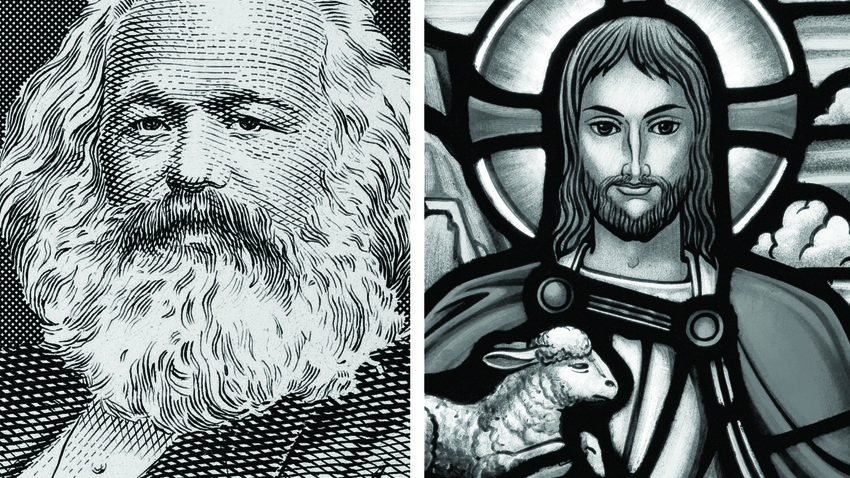
One hardly expects to find Karl Marx and Jesus in the same headline. After all, what in the world would the intellectual forerunner of political atheism (still known today as communism) possibly have in common with One regarded by billions as Lord and Savior? Wasn’t it Marx who in 1843 penned that line in German, still remembered today, “Religion is the opium of the masses”? What then could he and Jesus possibly have had in common? As it turns out, much more than anyone today would think. I’m reading my way through F. F. Bruce’s stirring commentary on the Gospel of John. Just this week I came across a footnote, tucked away at the end of his comments on John 15. It turns out that seventeen year old Karl Marx wrote a graduation essay with this intriguing title, “The union of believers with Christ according to John 15:1-14, showing its basis and essence, its absolute necessity, and its effects.” His essay was later approved as “a thoughtful, copious and powerful presentation of the theme” (quoted in F. F. Bruce’s The Gospel of John, 316). What a stunning contrast between the youthful convictions of a teenager and the later avowed atheism of this man who would eventually be heralded as one of history’s most influential figures! During this week of prayer with our guest preacher Karl Haffner, we have again and again returned to the compelling theme of a personal friendship with God—what the young Karl Marx described as “the union of believers with Christ.” No matter where his intellectual journey eventually took him, the young Marx wisely and correctly described this personal union with the Savior as an “absolute necessity.” And what was his basis for such a conclusion? Jesus’ own words: “‘I am the vine; you are the branches. If you remain in me and I in you [“the union of believers with Christ”], you will bear much fruit; apart from me you can do nothing’” (John 15:5 NIV). That has been the second Karl’s appeal all this week, the appeal of Jesus, “Abide in Me and I in you.” It’s the heart and soul of a living friendship—it’s the gift of a daily reconnecting—it’s the promise of a daily recommitting to the “absolute necessity” of carrying your early morning Christ-consciousness with you throughout the hectic day ahead. Both Karls are right—it begins and ends with a personal union with Him. The week is now ended. But let the friendship begun this week go on. And on. Beyond the galaxy and galaxies. With Jesus. In the words of this week’s theme song: “For I know whom I have believed and am persuaded that He is able to keep that which I’ve committed to Him until that Day.”

So when do the beheadings stop? The dark revulsion the world community has expressed over these diabolical, taunting, on-camera killings certainly has not dissuaded the terrorists. Today they butcher captured journalists. And when they run out of journalists, who will be next? Subjugated women, children, and men—both Muslim and Christian—have already been the human fodder for ISIS and its grizzly on-camera executions. Who will be evil’s next choice for extermination? Twice now the black-hooded executioner has taunted by name the President of this nation. But the sobering reality is that the greatest political, military powers on earth are simply unable to staunch this hemorrhage of evil. The other day someone suggested that they simply nuke the living daylights out of the entire region. But what would that solve? And besides, wouldn’t such a response be guilty of the same black-hooded sin—butchering the innocent for the sake of making a point? Jesus identified “the increase of lawlessness” as the contributing factor for the moral collapse of this civilization on the eve of His return (Matthew 24:12). In fact, He warned, “as it was in the days of Noah, so it will be at the coming of the Son of Man” (v 37). And what were “the days of Noah” like? “Then the LORD saw that the wickedness of man was great in the earth, and that every intent of the thoughts of his heart was only evil continually” (Genesis 6:5). “Only evil continually.” Perhaps we still have a ways to go. Which is why “go” is the operative command for the followers of Christ in this global descent into darkness: “Go into all the world and preach the gospel to all creation”—“for I am the Light of the world”—“and you are the light of the world, so let your light shine before others that they may see your good deeds and glorify your Father in heaven”—“for night is coming when no one can work” (Mark 16:15; John 9:5; Matthew 5:16; John 9:4). The followers of Christ can wring their hands and rage against the dying of the light. Or they can light a candle and move out into the night of human suffering and need—like medical personnel who have flown to the Ebola-racked nations of Africa to minister to the victims, irrespective of the personal cost—like volunteers at an inner city soup kitchen, who incarnate God’s love in the midst of impoverished suffering—like self-supporting evangelists who pay their way to a country they can’t pronounce to share a message they know by heart, by simply moving next door to perfect or imperfect strangers. Let the talking heads plot their political responses to earth’s unraveling conditions. We who follow “this same Jesus” have but one response He calls us to make—in His name we must go.
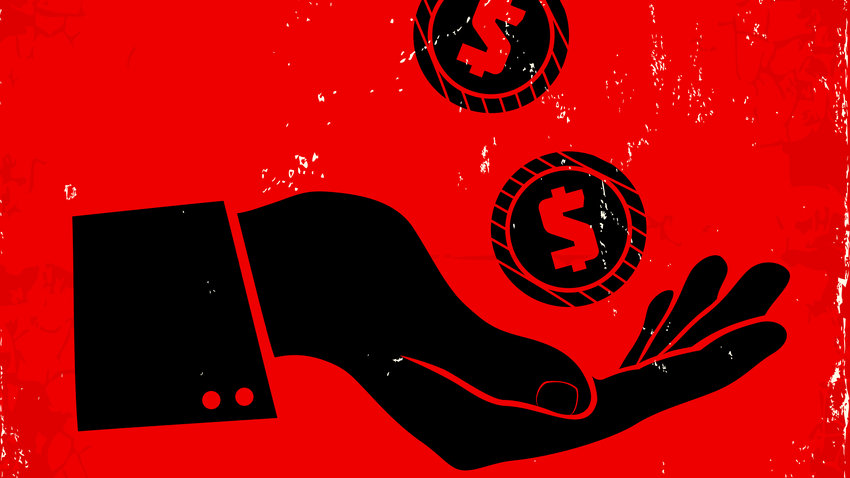
In the midst of all the bad news headlines at summer’s end, here’s a feel-good story from St. Petersburg, Florida. At 7 a.m. last Wednesday a woman drove up to the Starbuck’s window and was prepared to place her order. And then on a whim, she told the cashier, “Make that two orders—I want to pay for the driver behind me.” She had no idea who that driver was. On the spur of the moment she simply decided to pay for both beverages, hers and the stranger’s. So when the driver behind her drove up to the window, the cashier announced: “The driver ahead of you just paid for your order.” Oh really? “Well then, let me pay for the driver behind me.” And so it went all morning. And all afternoon. And into the evening. Three hundred and seventy-eight drivers had their beverages paid for by the anonymous driver ahead of them. All because a stranger, who at 7 that morning practiced a quiet, no-fanfare act of random kindness. As it turned out, the 379th driver drove up to the window to order her beverage and was informed that it had already been paid for, “and would you like to pay it forward for the next customer.” “No,” she replied, “I only want to pay for my own drink” (which, of course, had already been paid for). Maybe she just didn’t get it. No matter, the chain of kindness was quietly broken. That last driver reminds me a lot of me—poor chain-breaker me. Two thousand years ago the Man on the middle cross paid it forward (and backward) for the entire human race. But when I drive to Calvary’s window, I have the temerity to announce I want to pay for it myself. It’s not about ingratitude. It’s about being in control. And so if you don’t mind, I’ll pay for my own drink. Poor chain-breaker me. Andrews University’s theme text for this new school year declares: “Love the Lord your God with all your heart and with all your soul and with all your mind”—the words of Jesus on the banner over the circle outside (Matthew 22:37). After all He has paid it forward for every one of us. We owe Someone (besides this university) big time! James Denny was right: “I do not hesitate to say that the sense of debt to Christ is the most profound and pervasive of all emotions in the New Testament” (Death of Christ 158). So how shall we respond? Jesus answers: “And you shall love your neighbor as yourself” (Matthew 22: 39). Because you don’t pay back God’s love—you pay it forward. “For whoever does not love their brother and sister, whom they have seen, cannot love God, whom they have not seen” (1 John 4:20 NIV). Pay it forward. Love your neighbor. With random acts of thoughtful kindness. You’ll not only be the most popular person on campus. You’ll be the one God uses to start a brand new chain that may eventually stretch around the world. From here. From you. For Him. 379 and counting.
The story of the explosive racial divide of Ferguson, Missouri, (exposed last week by the shooting death of an unarmed African-American teenager by a white policeman) has become the headline of the world. For all of our nation’s rhetoric about the liberty and freedom of democracy and the American dream and the pursuit of happiness and equal rights for all citizens, we have become an enigma to the editorial talking heads of the international press. I.e., in their eyes, what we preach we don’t practice. The economic blogging website Zero Hedge carried a piece this week: “Why So Much Anger In Ferguson? 10 Facts About The Massive Economic Gap Between White & Black America.” It opens with, “When people feel like they don’t have anything else to lose, they are likely to do just about anything.” And it concludes with, “I wish that I could be more optimistic about the future of this country. I wish that I could believe that we won’t see a tremendous amount of chaos in the streets of America in the years ahead.” And in between those lines the blogger lists “10 startling facts” about the economic racial divide in this nation: (1) for decades “the unemployment rate for black Americans has consistently been more than twice as high as . . . for white Americans” (July 2014—11.4% v 5.3%); (2) African Americans also have an “underemployment rate” twice as high as white workers (20.5% v 11.8%); (3) a 2012 study reported that “the average white household has 22 times as much wealth as the average black household”; (4) African-American households, 13% of the population, “receive more than 26% of the food stamp benefits”; (5) high school graduation rates reflect the racial divide (82% for white students, 63.5% for black students); (6) Pew Research reports that the “income gap” between the two races “has continued to grow ever since the late 1960s” (the difference in media household incomes growing from around $19,000 to “roughly $27,000” in 2011 [measured in 2012 dollars]); (7) in this nation 12% of white children live in “areas of concentrated poverty” v 45% of African-American children; (8) the percentage of children living in single parent homes is 19.9% for white children, 52.1% for black children; (9) since 1960 the decline of the percentage of adults getting married has been from 74% to 55% for whites and from 61% to 31% for blacks; and (10) “the incarceration rate for black men is more than six times higher than it is for white men.” (http://www.zerohedge.com/news/2014-08-19/why-so-much-anger-ferguson-10-facts-about-massive-economic-gap-between-white-black-a) How does the church of Christ live with disparities like this? When Jesus declared that “Love your neighbor as yourself” (Matthew 22:39) is the second half of “no commandment greater than these” (Mark 12:31), what was He trying to tell us? When Desire of Ages pronounces that—“[in the final judgment] their [our] eternal destiny will be determined by what they [we] have done or have neglected to do for Him [Christ] in the person of the poor and the suffering” (637)—what does that tell us about our responsibility in Ferguson or America? Or how about Benton Harbor, twelve miles up the road from us? What difference will the racially diverse student body of Andrews University make this new school year? How will we respond to this “massive economic gap”? What would Jesus do if He were a student or a faculty member on this campus? Makes you wonder, doesn’t it?
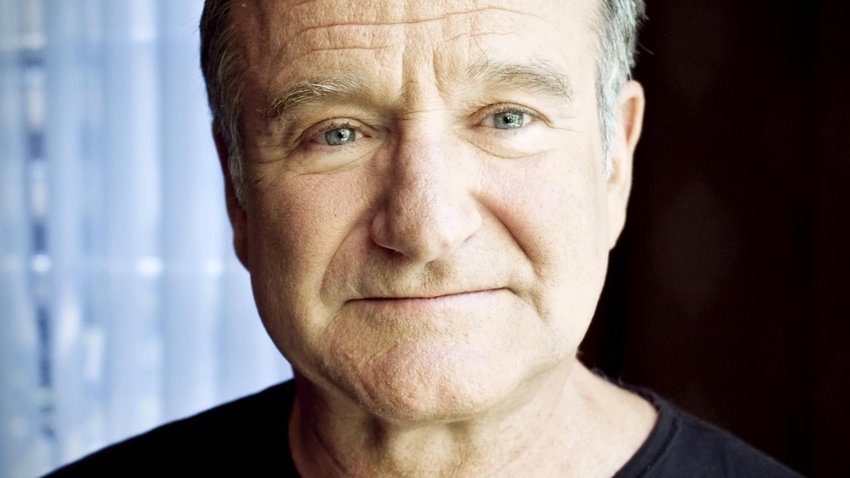
The old King James reads: “A merry heart doeth good like a medicine, but a broken spirit drieth the bones” (Proverbs 17:22). The news of Robin Williams’ suicide stunned the world Monday evening. And the off-the-chart Richter scale of public outpouring has been a measure of the global affection the 63-year-old comedian enjoyed. Talking heads like psychologist Dr. Phil and comedienne Joan Rivers gave voice to the painfully repeated question, ”But why?” Why would such a popular entertainer, so relatively young, so obviously successful (with career box office receipts of $5 billion), so apparently happy (with all the accoutrements of wealth, family and achievement, his well-publicized addictions notwithstanding)—why would Robin choose suicide as a final solution? His own words, scripted to be sure, were played and replayed in the somber reporting of his death. In a scene where he plays a guest on the show of a popular television psychologist, the host asks him to comment on teenage despair. Turning from the woman psychologist and looking into the camera, as if he were talking to a distraught viewer, he offers this now chilling advice: “And remember, suicide is a permanent solution to temporary problems.” How tragically permanent Robin Williams’ untimely death truly is. “A merry heart doeth good like a medicine, but a broken spirit drieth the bones.” In Robin’s biography, the latter half of this ancient proverb trumped the first half. The broken spirit silenced the merry heart. Now that depression has become a water cooler conversation, we’re hearing numbers suggesting one in 10 of us in this country suffers from it, with 80% of depression cases going untreated. Now we’re being reminded of warning signs that could indicate the possibility of depression: feelings of sadness that don’t go away; a sense of guilt, worthlessness; loss of energy; feeling tired constantly; loss of interest in pleasurable activities; sleep changes; appetite changes; thoughts of suicide. “If you have some of these classic symptoms of depression and the symptoms are severe and have lasted longer than a few weeks, you should seek help. The best place to start is with your doctor. . . . Depression is not a sign of weakness or a reason for shame—it is a serious illness. The positive news is that even in serious cases of clinical depression, treatment is usually very successful. And the earlier treatment is started, the more successful it is. So don’t wait.” (http://www.everydayhealth.com/depression/symptoms.aspx) “Don’t wait”—that’s good counsel for you or for someone you care about—because “very successful” means the treatments really do work. And so does God. While His preferred method of treatment most often is through a counselor or physician, Jesus’ promise is still sure, “I have come that you may have life, and have it to the full—so come to Me, and I will give you rest” (see John 10:10, Matthew 11:28). Because the truth is, Christ is the only “permanent solution” to the phalanx of problems we all face. “Come to Me” is His assurance that even the darkest of our private struggles can be “temporary.” Dr. Phil, commenting on William’s death, told the interviewer, “I wish he had called me.” Don’t we all. So make the call. “Come to Me” means “Don’t wait.”
- ‹ previous
- 34 of 64
- next ›
